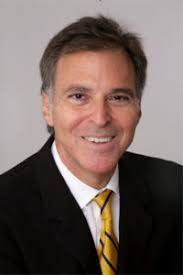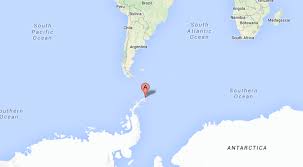The record high temperature at Esperanza Base, Antarctica – set in 2015 – was recently eclipsed by an additional 1.4 degrees. Increases in Antarctica matter most because the ice sheets have become less stable, potentially accelerating the rate and rise in sea levels.
By pumping CO2 into the atmosphere, we’ve reversed the natural cycle of entering a cooling phase and increased global temperature to unprecedented levels based on the geological record. It’s hard to conceive of a more important issue for us to focus on and lead the world in solving.

In 2008 I witnessed firsthand the melting ice-shelf in Antarctica as scientists explained how warmer waters have altered the food-chain and their concerns about the ice sheet atop the southern pole. In 2008, with an economy in turmoil, a tax on emissions was unpopular – and even unthinkable.
In 1975, as an undergraduate, I read the chapter titled “Global climatic change” in Gilbert Masters’ “Introduction to Environmental Science and Technology.” It explained how air pollution – as a by-product of combustion – affects climate. This was well understood before the 1960s.
That textbook was published while Mao Zedong was ruling China behind a curtain that concealed a pre-industrial nation in the throes of the “Cultural Revolution.” So where did the false claim that global warming is a “Chinese hoax” originate? I’ve asked several congressional leaders and none provided a clear explanation.
It’s 2020, and South Florida has begun to wrap its collective head around the barrier walls proposed by the Army Corps of Engineers for Miami.
There’s another barrier to be concerned about: the barrier to the truth. With the staggering price tag for adaptation to sea-level rise, shouldn’t we challenge anyone who knowingly obfuscates scientific facts? Shouldn’t we assign accountability?

This year, with the economy strong, the world’s largest asset manager – BlackRock – announced that greenhouse gases are changing more than climate. They are changing the global financial system.
The good news is that in the last five years Americans saved almost $1.8 trillion while reducing energy use by almost 2%. We’ve gained momentum in the built environment, but we still have work to do in the transportation sector.
According to the not-for-profit Architecture 2030, we can continue to make progress reducing emissions with significant economic benefits. Let’s continue to apply American know-how and lead efforts around the world to end carbon emissions across all sectors and limit rising sea levels.
Anthony J. Abbate is an architect and a professor and associate provost at Florida Atlantic University.
“The Invading Sea” is the opinion arm of the Florida Climate Reporting Network, a collaborative of news organizations across the state focusing on the threats posed by the warming climate.



